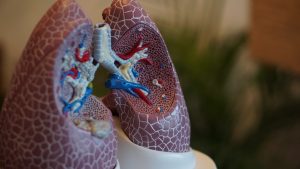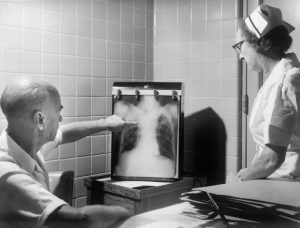What Is Transcultural Nursing?
 Transcultural nursing is a distinct nursing specialty which focuses on global cultures and comparative cultural caring, health, and nursing phenomena. The transcultural nurse looks to respond to the imperative for developing a global perspective within the nursing field in an increasingly globalized world of interdependent and interconnected nations and individuals. The primary aim of this specialty is to provide culturally congruent nursing care. To be an effective transcultural nurse, you should possess the ability to recognize and appreciate cultural differences in healthcare values, beliefs, and customs. Transcultural nurses shouldn’t only be familiar with the religious customs, values, and beliefs of patients, but also how someone’s way of life, their modes of thought, and their unique customs can immensely affect them in how they deal with illness, healing, disease, and deaths.
Transcultural nursing is a distinct nursing specialty which focuses on global cultures and comparative cultural caring, health, and nursing phenomena. The transcultural nurse looks to respond to the imperative for developing a global perspective within the nursing field in an increasingly globalized world of interdependent and interconnected nations and individuals. The primary aim of this specialty is to provide culturally congruent nursing care. To be an effective transcultural nurse, you should possess the ability to recognize and appreciate cultural differences in healthcare values, beliefs, and customs. Transcultural nurses shouldn’t only be familiar with the religious customs, values, and beliefs of patients, but also how someone’s way of life, their modes of thought, and their unique customs can immensely affect them in how they deal with illness, healing, disease, and deaths.
Becoming a Transcultural Nurse
Put simply, transcultural nursing is nursing with a primary focus on care that is culturally sensitive and inclusive. A transcultural nurse helps their patients by providing culturally sensitive care to patients hailing from all around the globe. These nurses often treat patients who are migrants, immigrants, or refugees. Transcultural nurses work not only in foreign countries, but also right here in our diverse cities, applying their knowledge to their local nursing position, and sometimes helping integrate their philosophies into nursing practices at clinics and hospitals.
What Are the Educational Requirements for Transcultural Nurses?
Transcultural nurses must begin their careers by obtaining licenses as registered nurses (RNs). Essentially, there are two educational pathways that lead toward licensure. Prospective transcultural nurses can begin their educational process by earning either a four-year Bachelor’s of Science in Nursing (BSN) or by earning a two-year Associate’s Degree in Nursing (ADN). Upon obtaining either of these educational degrees, one must then take and pass the NCLEX-RN (Nursing Council Licensure Examination). The last step is to apply with the state’s licensing agency to become a fully registered nurse.
Are Any Certifications or Credentials Needed?
Because transcultural nursing is a relatively new sub-specialty of nursing, certification in the field has only been available since 1987. Although certification is an entirely voluntary process, most employers see it as necessary for employment. A certification in transcultural nursing demonstrates a registered nurse’s commitment to mastery in the specialty. Furthermore, it exhibits to co-workers and future patients that your knowledge and skill level are both current and up to par with national standards. Both advanced and basic transcultural nursing certifications are available via the Transcultural Nursing Society. However, those seeking advanced certification in transcultural nursing will first need to complete a master’s degree or doctorate in nursing to be qualified.
Research Transcultural Nursing DNP Programs.
Where Do Transcultural Nurses Work?
Transcultural nurses can be found working in the following healthcare settings:
- Hospitals
- Community clinics
- Outpatient facilities
What Does a Transcultural Nurse Do?
Transcultural nurses seek to provide culturally congruent and competent care to their patients. Providing culturally congruent care means providing care that fits the patient’s valued life patterns. Since this will vary from culture to culture, transcultural nurses are expected to be familiar with a wide variety of cultures and their corresponding values. Providing culturally competent care refers to the ability of the transcultural nurse to bridge cultural gaps in caring, as well as working with cultural contrast to enable clients and families to bring about meaningful care.
What Are the Roles and Duties of a Transcultural Nurse?
The functions and obligations of transcultural nurses include, but aren’t limited to, the following:
- Communicate with foreign patients and their loved ones
- Educate families on patients’ medical status
- Act as a bridge between a particular patient’s culture and healthcare practice
- Determine the patient’s cultural heritage and language skills
- Determine if any of the patient’s health beliefs relate to the cause of their illness or problem
- Collect information on any home remedies the person is taking to treat their symptoms
- Understand the influence of culture, race, and ethnicity on the development of social and emotional relationships, child rearing practices, and attitude toward health
- Collect information about the socioeconomic status of the family and its influence on their health promotion and wellness
Transcultural Nurse Salary & Employment
The employment outlook for nursing is most promising in each of its many specializations—including transcultural nursing. Even amidst global economic downturns, the healthcare field continues to grow at a semi-rapid pace. According to the U.S. Bureau of Labor Statistics, the nursing profession as a whole is predicted to increase 22 percent by 2018. According to the American Nurses Association, because large numbers of currently employed nurses are nearing retirement age, the increasing demand for nurses should continue. Furthermore, as Western countries continue to become more and more diverse with people from different religions, cultures, and races, demand for transcultural nurses will inevitably expand.

 Telephone triage nurses, sometimes known as telehealth nurses or TTNs, assist patients over the phone or via video chat. TTNs often help patients decide whether they need to seek emergency treatment, make an appointment with a doctor, or if they can treat themselves. Telephone triage nurses are trained to ask patients highly specific questions to accurately assess their case and refer them to an appropriate health care professional. Telephone triage nurses have the ability to access patients’ health information profiles and pertinent charts online, giving them the unique ability to assist their patients remotely. TTNs are especially useful for patients who must travel long distances to reach a medical facility and for those who must struggle to pay for medical services. They also assist doctors in reducing their patient load by remotely guiding patients with minor health problems to save an often-expensive visit to the physician’s office. This helps to eliminate overcrowding and reduce long wait times in emergency medical facilities. Most telephone triage nursing services are available 24 hours a day, 7 days a week, resulting in
Telephone triage nurses, sometimes known as telehealth nurses or TTNs, assist patients over the phone or via video chat. TTNs often help patients decide whether they need to seek emergency treatment, make an appointment with a doctor, or if they can treat themselves. Telephone triage nurses are trained to ask patients highly specific questions to accurately assess their case and refer them to an appropriate health care professional. Telephone triage nurses have the ability to access patients’ health information profiles and pertinent charts online, giving them the unique ability to assist their patients remotely. TTNs are especially useful for patients who must travel long distances to reach a medical facility and for those who must struggle to pay for medical services. They also assist doctors in reducing their patient load by remotely guiding patients with minor health problems to save an often-expensive visit to the physician’s office. This helps to eliminate overcrowding and reduce long wait times in emergency medical facilities. Most telephone triage nursing services are available 24 hours a day, 7 days a week, resulting in  The telemetry nurse specializes in caring for patients with heart disease, complications of heart disease and/or heart failure, or other medical issues which require continuous telemetry monitoring. This also includes caring for patients who are recovering from cardiac intervention, such as a cardiac stent or coronary artery bypass grafting (CABG) surgery. It’s important to note that this type of nurse does not work in the Cardiac Care Unit, which is a type of ICU which cares for cardiac patients. The patient on the telemetry floor has often transferred from the ICU and is now considered stable, but requires close monitoring.
The telemetry nurse specializes in caring for patients with heart disease, complications of heart disease and/or heart failure, or other medical issues which require continuous telemetry monitoring. This also includes caring for patients who are recovering from cardiac intervention, such as a cardiac stent or coronary artery bypass grafting (CABG) surgery. It’s important to note that this type of nurse does not work in the Cardiac Care Unit, which is a type of ICU which cares for cardiac patients. The patient on the telemetry floor has often transferred from the ICU and is now considered stable, but requires close monitoring. A substance abuse nurse, sometimes referred to as an addiction nurse, specializes in the treatment of patients addicted to drugs, alcohol or other substances. Substance abuse nurses are trained in mental health in addition to general medicine. They provide pain management, education for patients and caregivers about the dangers of substance abuse, and emotional support to patients in crisis.
A substance abuse nurse, sometimes referred to as an addiction nurse, specializes in the treatment of patients addicted to drugs, alcohol or other substances. Substance abuse nurses are trained in mental health in addition to general medicine. They provide pain management, education for patients and caregivers about the dangers of substance abuse, and emotional support to patients in crisis. A school nurse works with school-aged children in the educational setting. Students experiencing illness or injury during the school day often report to the school nurse for assessment. Administering routine medications, caring for a child with a virus, or stabilizing a child until emergency services arrive after a more serious injury may all be a part of the job requirements. Resources are often limited and the school nurse must know when the child needs a higher level of care or when parents need to be called. The school nurse may also be required to educate students and staff about health-related issues.
A school nurse works with school-aged children in the educational setting. Students experiencing illness or injury during the school day often report to the school nurse for assessment. Administering routine medications, caring for a child with a virus, or stabilizing a child until emergency services arrive after a more serious injury may all be a part of the job requirements. Resources are often limited and the school nurse must know when the child needs a higher level of care or when parents need to be called. The school nurse may also be required to educate students and staff about health-related issues. A rheumatology nurse treats patients with rheumatic diseases. A rheumatic disease is a disease that affects joints and muscles. Some of these diseases are caused by overuse/wear and tear while others are caused by immune system issues. Some of the diseases a rheumatology nurse may encounter include:
A rheumatology nurse treats patients with rheumatic diseases. A rheumatic disease is a disease that affects joints and muscles. Some of these diseases are caused by overuse/wear and tear while others are caused by immune system issues. Some of the diseases a rheumatology nurse may encounter include: A respiratory nurse, also called a pulmonary care nurse, is a nursing professional that plays an instrumental role in the treatment of patients who are suffering from respiratory problems. As problems in the respiratory system can result in several complications, some of which can be fatal, proper treatment is essential. A respiratory nurse will often care for patients that suffer from both acute and chronic respiratory illnesses. Such illnesses include asthma, pneumonia, bronchitis, emphysema, tuberculosis, and lung cancer.
A respiratory nurse, also called a pulmonary care nurse, is a nursing professional that plays an instrumental role in the treatment of patients who are suffering from respiratory problems. As problems in the respiratory system can result in several complications, some of which can be fatal, proper treatment is essential. A respiratory nurse will often care for patients that suffer from both acute and chronic respiratory illnesses. Such illnesses include asthma, pneumonia, bronchitis, emphysema, tuberculosis, and lung cancer. Research nurses conduct scientific research into various aspects of health, including illnesses, treatment plans, pharmaceuticals and healthcare methods, with the ultimate goals of improving healthcare services and patient outcomes. Also known as nurse researchers, research nurses design and implement scientific studies, analyze data and report their findings to other nurses, doctors and medical researchers. A career path that requires an advanced degree and additional training in
Research nurses conduct scientific research into various aspects of health, including illnesses, treatment plans, pharmaceuticals and healthcare methods, with the ultimate goals of improving healthcare services and patient outcomes. Also known as nurse researchers, research nurses design and implement scientific studies, analyze data and report their findings to other nurses, doctors and medical researchers. A career path that requires an advanced degree and additional training in  Rehabilitation nurses help patients who have long-term physical disabilities or chronic illnesses and assist them with any personal limitations which might result from these disabilities. These nurses work with patients and families to create a personally tailored recovery plan. Rehabilitation nurses also help patients to set both long and short-term goals. As a rehabilitation nurse, your primary objective is to help your patients gain back their health and independence to the best of their ability. Many rehabilitation nurses work with patients on an on-going basis.
Rehabilitation nurses help patients who have long-term physical disabilities or chronic illnesses and assist them with any personal limitations which might result from these disabilities. These nurses work with patients and families to create a personally tailored recovery plan. Rehabilitation nurses also help patients to set both long and short-term goals. As a rehabilitation nurse, your primary objective is to help your patients gain back their health and independence to the best of their ability. Many rehabilitation nurses work with patients on an on-going basis. A radiology nurse, also referred to as a medical imaging nurse, is a nursing professional that cares for patients that must undergo diagnostic imaging procedures and radiation therapy. Common diagnostic imaging tests include x-rays, computed tomography scans (CT scans), magnetic resonance imaging scans (MRIs), and ultrasounds. Through the use of these imaging tests, medical professionals are able to see inside a patient’s body, enabling them to easily diagnose illnesses and suspected injuries.
A radiology nurse, also referred to as a medical imaging nurse, is a nursing professional that cares for patients that must undergo diagnostic imaging procedures and radiation therapy. Common diagnostic imaging tests include x-rays, computed tomography scans (CT scans), magnetic resonance imaging scans (MRIs), and ultrasounds. Through the use of these imaging tests, medical professionals are able to see inside a patient’s body, enabling them to easily diagnose illnesses and suspected injuries. 